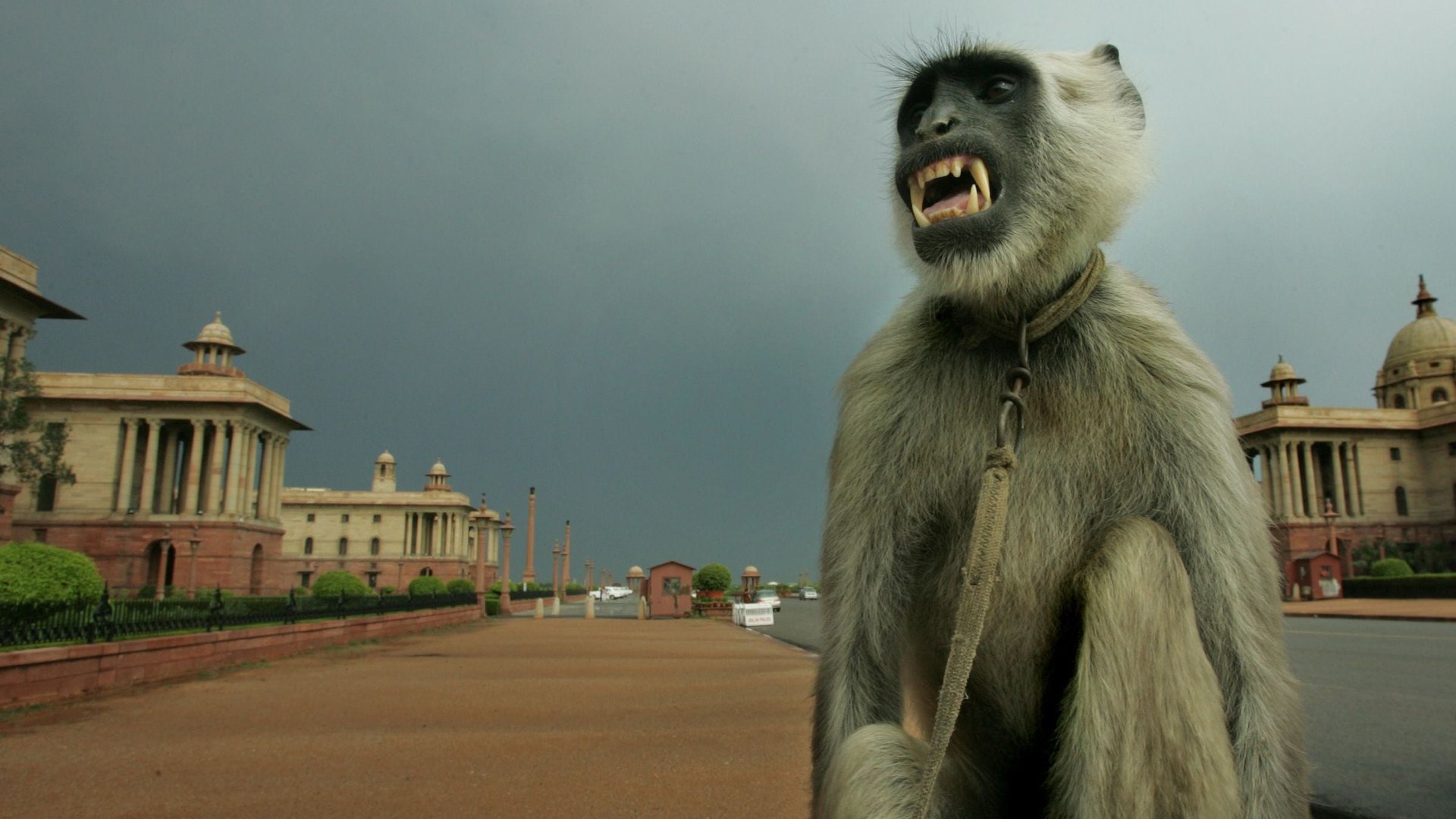India’s Parliament is hiring men with a gift for mimicry to scare away monkeys
This post has been updated.


This post has been updated.
India’s Parliament complex will soon resonate with cries of grown men imitating the call of langurs, a kind of monkey mostly found in the forests of India. This is because the New Delhi Municipal Corporation (NDMC) is acting under pressure from India’s elected representatives who want the law-making chambers of the world’s largest democracy to be free of the so-called monkey menace, or the periodic anarchy unleashed by troops of rhesus monkeys.
Hiring men to imitate the cry of the langur is the next best thing to actually using a langur to scare away the smaller monkeys. That is how it was done till recently. Men with a chained langur would walk around the sandstone office buildings and official bungalows of Lutyen’s Delhi to keep the monkeys away.
In recent months, following protests from animal rights activists such as the union minister Maneka Gandhi, the government has banned the use of captive langurs to address the monkey problem. So now, the NDMC, trusted with the upkeep of civic infrastructure in Lutyen’s Delhi, has hired 40 men to impersonate, as far as possible, langurs.
M. Venkaiah Naidu, minister for urban development, said today that his ministry was on the job of curbing the menace of dogs and monkeys in the Parliament. The measures include: “scaring the monkeys away by trained persons who disguise themselves as langurs. New Delhi Municipal Corporation (NDMC) has hired forty young persons for this purpose.”
An NDMC official told The Wall Street Journal that the minister only meant that the hired men will mimic the cry of the langur and will not actually disguise themselves as the animal.
Monkeys have been a nuisance in New Delhi’s government buildings for a long time. They don’t acknowledge the hierarchy of power and have no qualms about frequenting the high-security Parliament complex or the North and South Blocks on Raisina Hill, which house important ministries such as defence, home, finance and the prime minister’s office. Sometimes they attack officials and destroy files. When files are lost, it is conveniently attributed to the monkey menace.
In 2007, a deputy mayor died after falling off a terrace during a monkey attack. Despite such difficulties, monkeys are not killed because Hindus associate them with their monkey-god Hanuman.
Under country’s Wildlife Protection Act 1972, the langurs are a protected species and cannot be owned, sold or hired out.
Banning of the use of captive langurs has led to a rise in complaints against monkeys. In May, Times of India reported that there were only eight monkey catchers working in Delhi.
The effectiveness of humans mimicing langurs will soon be known. If monkeys catch on to this subterfuge in the corridors of power, the NDMC will be left with the only other option—shooting them with rubber bullets.
This week, a palm civet caused panic in the Parliament.